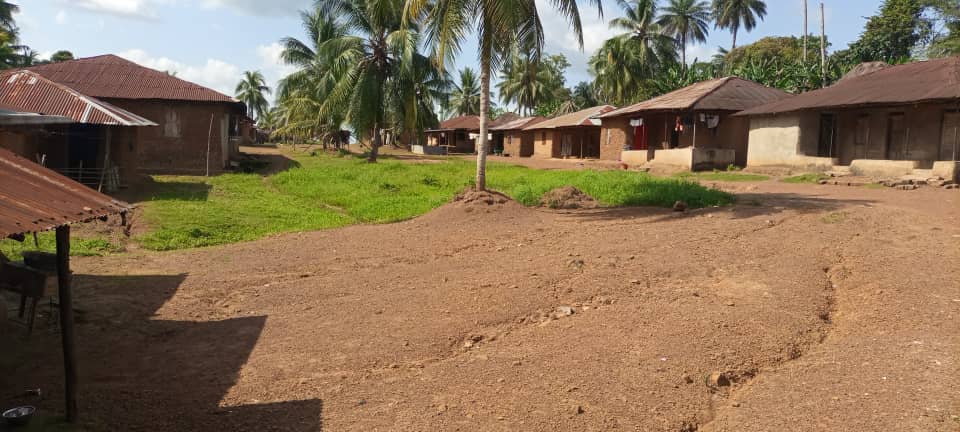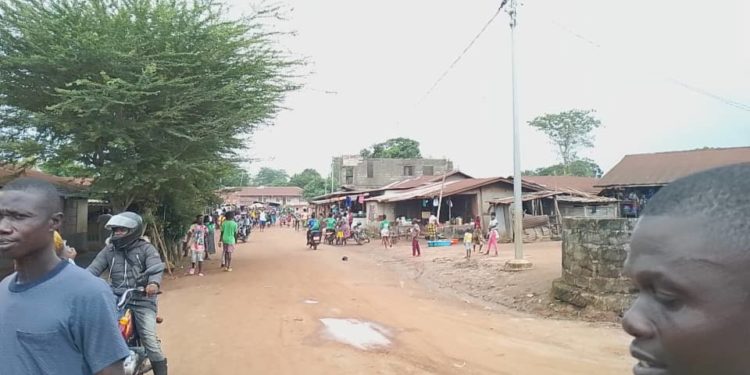By Brima Sannoh
In the rice fields of Gbondapi, deep in southern Sierra Leone’s Pujehun District, Augusta works long days under the sun, operating heavy agricultural machinery for a government-backed farming initiative. But her real burden lies in what happens off the record, the silent, repeated violations of her dignity. “Sometimes he touches me inappropriately. I tell him to stop, but he doesn’t care. He just keeps doing it,” Augusta says, her eyes downcast.
“I’ve thought of quitting, but I need this job. I’m afraid of what might happen if I report him.” Augusta is one of countless women in Sierra Leone who endure sexual harassment in silence, caught between economic survival and a justice system that, despite legislative strides, often fails to protect them.
In 2019, Sierra Leone declared rape and sexual violence a national emergency, establishing a special court for sexual offences and passing the Sexual Offences (Amendment) Act. In 2022, the government ratified the ILO Violence and Harassment Convention, a global benchmark for workplace protection. According to UNFPA, 62% of Sierra Leonean women aged 15–49 have experienced physical or sexual violence.
The World Bank reports that sexual harassment and gender-based violence remain the most prevalent abuses against women in the country. CHRDI, a local rights organisation, says workplace sexual harassment is alarmingly widespread, particularly in agriculture, banking, and public institutions.
“The stories we hear are not isolated,” says Katherine Musu Bureh, coordinator of 50/50 Sierra Leone in Pujehun. “They reflect a systemic failure to protect women. Too many are working in fear, silenced by shame, threats, or the risk of losing their livelihoods.”
“I Refused to Date My Supervisor – And He Punished Me” Massah, another survivor, works as a maintenance staff member at Socfin Agricultural Company in Sahn Malen. Her story mirrors Augusta’s. “He kept asking me out. I kept saying no. Then suddenly, my workload increased. I was excluded from team meetings. He made it clear: if I wanted peace, I had to give in.” Massah didn’t give in. But she paid a price. “Even now, he holds a grudge. I’m not on good terms with him, but I’m proud I stood my ground. Other women need to do the same.”

Sexual harassment in Sierra Leone often goes unreported, not because it is rare, but because it is dangerous to speak up. Women fear retaliation, disbelief, or being blamed. Others simply cannot afford to lose their jobs. “Victims are afraid they won’t be believed,” says Detective Inspector Momoh Musa Gbah, head of the Family Support Unit in Pujehun. “They rarely come forward. And even when they do, they often lack the evidence we need to proceed.” He admits the number of sexual harassment reports remains low, not because the abuse has stopped, but because fear still silences the victims.
Both Socfin and the Ministry of Agriculture, where Augusta and Massah work, claim to have zero-tolerance policies. “We haven’t received formal complaints,” says Tigidankay Vlottes, Gender Committee focal person at Socfin. “But if we get evidence, we’ll not only apply internal sanctions, we’ll hand the offender to the police.” Peter Massaquoi, the district coordinator of the National Farmers Federation, also expressed concern, pledging swift action if any incident is proven. “No one has reported harassment to me,” he said. “But if someone is caught, they’ll be removed immediately.” Still, for many like Augusta, the problem is not policy, it’s implementation, trust, and enforcement.
The Truth and Reconciliation Commission (TRC), which documented the atrocities of Sierra Leone’s civil war, found that all armed groups committed acts of sexual slavery, rape, and torture against women and girls. In its final report, the commission urged the government to provide psycho-social and reproductive health services for survivors. “Those recommendations were made over 20 years ago,” says Ibrahim Borgiwa Swaray, head of the Pujehun Civil Society Forum.
“Yet violence against women persists, in our homes, schools, and workplaces.” As Sierra Leone tries to transform its gender justice framework, campaigners argue for national dialogue, investigative training for law enforcement, and strengthening workplace reporting systems.
“We need a cultural shift,” says Katherine Bureh. “Women should be free to work without harassment. And if they’re harassed, they should feel safe to speak out, without fear.” For Augusta and Massah, justice remains elusive. But by telling their stories, they hope to change that, for themselves, and for the women who will follow. “We need the law to protect us,” Augusta says quietly. “We’ve been silent too long.”
This story was produced with support from the African Transitional Justice Legacy Fund (ATJLF), through the Media Reform Coordinating Group (MRCG), under the project “Engaging the Media and Communities to Change the Narrative on Transitional Justice Issues in Sierra Leone.”






















